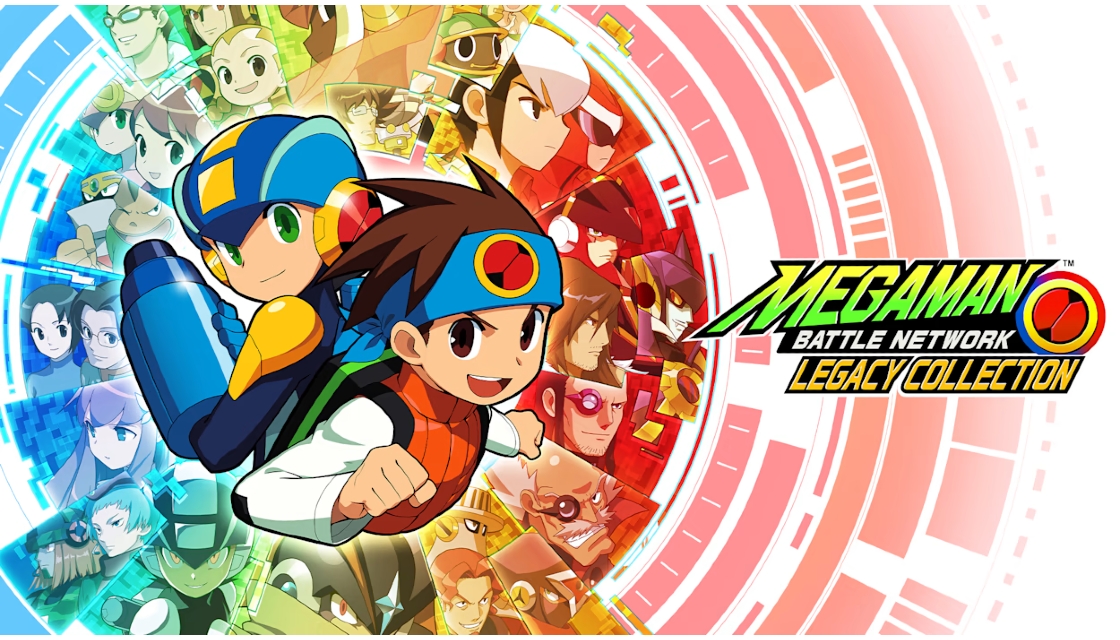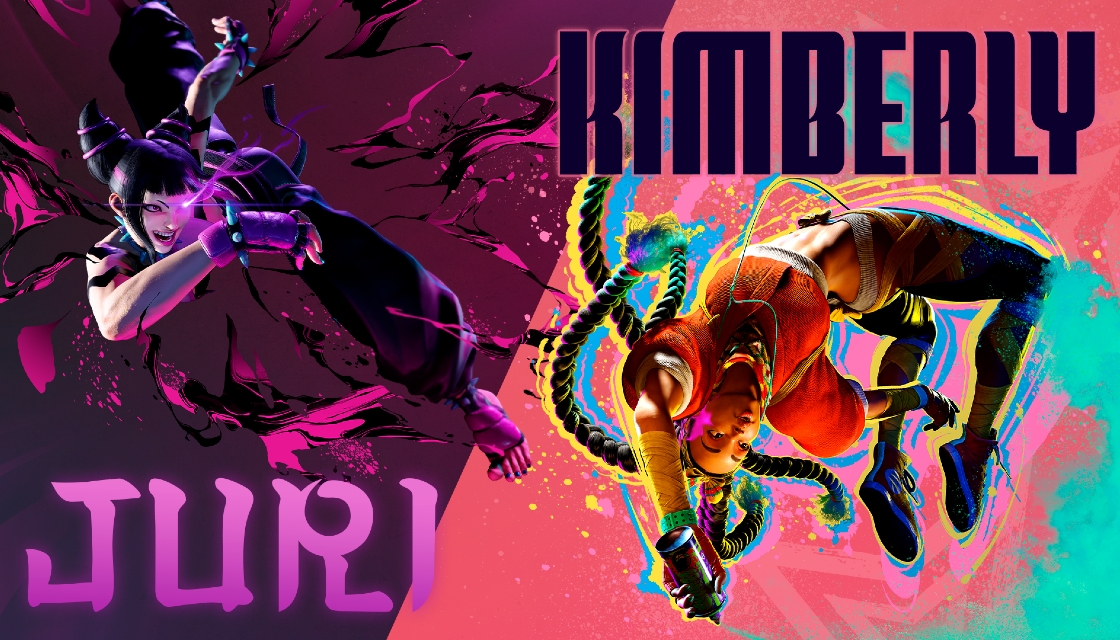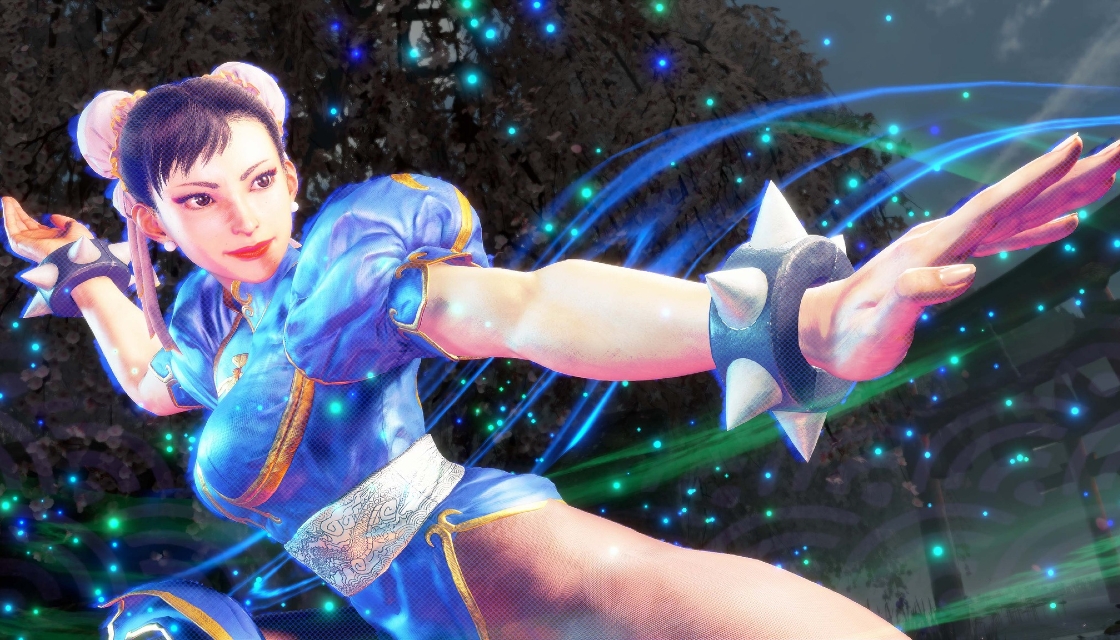T-ono: Can you describe in detail what Capcom Unity does and how you guys help the community or whether or not it expands outside of fighting games?
SK: Well, Capcom Unity is just for all Capcom products. The EVO tournaments are actually primarily sponsored by Shoryuken.com, which is another site I was a part of starting. Capcom Unity is officially Capcom and covers other non-fighting games like Resident Evil and Megaman as well.
T-ono: Well, as you've said, you're a big part of the fighting game world. You've been a major player, organized tournaments, things like that. Does that experience help with other projects Capcom Unity has?
SK: Yeah, I hope so. I enjoy talking to people, and I really love Capcom and a lot of its products. I'm as excited about the products as a lot of our fans are. So I feel like it helps when I talk to them and think about what they're interested in, because I can just think about what I'm interested in. I'm usually pretty well connected with other fan communities out there as well - not just Street Fighter, but Resident Evil, Megaman, the whole nine yards.
T-ono: How did you go from being a gamer to a tournament organizer and now a Capcom employee?
SK: Wow, it's funny when you say it like that. (laughs) I haven't really thought about it in that kind of track. In the beginning, I was just a kid, and liked to hang out in the arcades like anyone else. I didn't even play in the arcades that much. When I saw Street Fighter, I was just enchanted. I thought it was a beautiful and mysterious game. You had to fight against another guy, and that was fun. Mostly, I just didn't like to lose. So, I lost for a while, but kept practicing and got better and better. And was lucky enough to be at a college where we had early access to the internet where we got connected to a few other players who got active in early online fighting game communities.
We started organizing events where people got together to see who's best. I got to have some success at a few national tournaments and was lucky enough to be put on Team USA, although it didn't go very well for me (laughs). It was a troubled trip for sure. I went from there, I was happy with that, and had a different career with nothing to do with video games at all.
I'd go to E3 every year, and we'd always go to the Capcom booth, because they always had these arcade machines there. This is the old E3 when it was still big, so we went there every year, and I'd say, "Hey, my name's Seth. We have this tournament with 2000 of your biggest fans from around the world. Could we get like a box of keychains or posters or something like that?" and they'd go "Buzz off, weirdo!" And I'd be like, "Okay, see you next year!" and I'd pretty much go back every year and ask the same question. Maybe the third or fourth year, I met some people who were a little more interested and less dismissive and didn't think I was a weirdo. They ended up offering me a job a few years later. I said, "You know what? I've been in love with this community and Capcom for so long. I should really give this a try." And I did. It's been really great ever since.
T-ono: Wow, that's awesome. Do you feel that your path has made you more qualified for your job? And does this job help run Evo even better?
SK: I hope so, yeah. Having more connections in the gaming industry, and certainly within Capcom have really helped. I have some good friends in the industry who have been really instrumental in helping us; they're excited about what's happening here with the players. I think it's safe to say that a few years ago, it would've been impossible to do a location test for a game like Tatsunoko vs Capcom. I'm happy we have those kinds of connections to help this event grow. For me, it's not about this event specifically, it's just about community environment. Anytime we do something like this, whether it be at Comic Con, or E3, where we actually brought in community people even though it's closed to the public, definitely helps. I think it's all part of a large package and that's exciting for me.
T-ono: Capcom Unity has done a lot of events, such as Street Fighter Club and the location tests at Evo. What kind of events do you guys have planned that would help other non-fighting games as well?
SK: Well, we do bring those games to other community-centric events. We were just at Comic con where we had most of our lineup for play and test in whatever stage of development they were at. Also, we'll put up notices to bring in Capcom Unity members to test unannounced new games as well. We put them under nondisclosure agreements, but bring them right into headquarters. They test and play the games there, then give us feedback; it's been really helpful.
T-ono: Cool. Well, one of the games we've been testing at Evo has been Tatsunoko vs Capcom, which features characters from Tatsunoko - obviously not as appealing to the US as the Marvel characters from the past. Are there any plans to bring that to the US or anything in discussion even?
SK: Well, it wasn't planned for US release originally, but I'm certainly excited about it and a few other people have caught the fever as well and are excited about this Marvel vs Capcom style engine that's powering the game and the possibilities there. [However,] it does face some licensing hurdles with the characters. Tatsunoko owns all the rights in Japan as I understand it, but in America and the rest of the world, the rights are owned by a variety of groups. It's going to take a considerable amount of effort to bring them all on the same page to bring them over.
There are other kinds of possibilities, we're thinking about. But I think it would be fun to have (the game come to America). I know the fighting game community will be happy to see it. We're looking into it, but definitely nothing to announce right now; it's very premature and it's something we'd like to do. We'll see how it works out.
T-ono: Like we've mentioned before, Capcom Unity does a lot of events. How many more can we expect and how can players show a demand for them?
SK: Well, the best way is to actually get involved on Capcom Unity's website. There're very influential people at Capcom who read those forums and respond to people everyday. So, you'll be aware of the feedback really quickly. As far as location tests, we will bring in more people. Not all games are ready for public location tests, but we do plan, for instance, more fight clubs around the country as well.
T-ono: Cool. Now, I went to the first Street Fighter club and it was this underground place that was a parody of Fight Club. Is that the tone for future Street Fighter club and can you tell me the frequency of these events?
SK: It probably is premature to guess at that. We fly by the seat of our pants, a little bit. So we have some plans, but we need to firm things up. So there's nothing set in stone for future Street Fighter Clubs. But we do like the underground tone, that's kind of what it's about - we want to [give] the players most interested in the game a chance to get hands on. Because, as you know, there's no real US arcade scene anymore. So I think playing Street Fighter 4 and hearing about it online are very different experiences.
I think everyone who comes away from playing it are pretty excited. Cause, online, the reaction is like, "Eh, looks like just another game." But after you play it, especially in the arcade atmosphere, I think you'll get very excited.
T-ono: That's cool. Wow, I've been saying that a lot. Obviously, Capcom Unity is the bridge between the developers and players. Can you describe that communication process?
SK: (laughs) Sure. In some cases, there are language barriers for the Japanese side of development. Some of our producers over there speak English. We even have Ben Judd, who's a westerner and speaks English. Actually, he's from Ohio, so I shouldn't just call him a Westerner (laughs). At any rate, there's a language barrier, and in those cases, we have translation teams who will work with them over there.
I will sometimes pick out specific particular things and try to compress a general sentiment like people complaining about a particular bug. I can send that info over there, but we also have US developers who are very active working on titles like Dark Void, Flock, and Age of Booty. They're on the site all the time - you can see them on the site posting or responding to posts. They're interested in what people think, which is part of the reason why we bring people in to test the games.
T-ono: Now, does Capcom Unity also deal with players outside of North America?
SK: We are planning to localize the site. But right now, it's still a new entity, so we're trying to get it up and moving properly and move from here to a more localized version - first to Europe and hopefully to Japan as well.
T-ono: Can you tell me how Capcom Unity came to fruition?
SK: Well, basically, Capcom has a lot of great fans and people excited about their products. But for many years, they haven't really had the resources to communicate with them directly. It was just sort of nobody's job. So when I was hired, it became my job. We went from hosting a simple Wordpress blog. We didn't have a lot of fancy technology at the beginning (laughs), so we just sort of flew by the seat of our pants since then. People have been internally pleased with the growth and they're excited to hear from the community and realize this could be a good thing for their games as well. And so we're able to build a more elaborate site with social networking tools and making it more user-friendly. It's a fun place to be, and we're still working on it all the time. So again, as far as the community goes, they're giving us a lot of feedback on what they do and don't like, and that's exactly the way it should be. We'll continue to keep growing and that's the way it should be. We've made a lot of strides from the beginning to now.
T-ono: You obviously have a big history with competitive gaming, which is probably considered the more hardcore side of gaming. Obviously with games, you have to satisfy both hardcore and casual gamers. How does Capcom Unity find that balance so no one side feels left out?
SK: Well, I try and take it title by title. Some of our titles are more hardcore, whereas others are more casual. Resident Evil is probably more in the middle. It's a hardcore gamer type of game, but not a competitive game as such. There's ways to play it by achieving things like playing through it with just a knife, which is really impressive. But that's really different from Street Fighter. I'm actually also a casual gamer myself. I [only] play Street Fighter hardcore and a few competitive types of games. I spend most of my time playing non-competitive type games, especially these days. So I feel like I have a pretty good sympathy for everyone. We just try to take each title on its own terms. So if we have a more competitive title, we take it in that direction. If we have a more casual game, we take it in that direction. Like Age of Booty, there's a lot of elements to it, like a competitive RTS, but it doesn't require any crazy motions like a dragon punch in 1/60 of a second. So anybody can pick up and play it, but there’s an element of strategy.
T-ono: Does the game developers' own intentions with a game set the tone for what Capcom Unity wants? Some games, like Street Fighter, are made to be more competitive and others like Megaman are made to be more casual. Does that or the community set the tone for the feedback you guys want?
SK: As far as I'm concerned, it's completely community driven. The developers may want a certain thing, but as far as I'm concerned, my job is not to give the developers what they want, but to report accurately what the community thinks. If [the community has] one attitude towards a game or they want to take it in a [different] direction, that's what I report back to the developers about.
T-ono: Street Fighter 4 is obviously one of the more competitive games, because it has that history of a community behind it. Already, there are complaints about certain things like Rufus being broken or Zangief being able to mash out 360s. Are there any plans already for a future iteration?
SK: Well, we'd like to get four out the door and hopefully it's a big success. If that happens, I'm sure you'll see something else in the future. As far as certain notions, I was part of the community and I was part of talking like that myself. I think a lot of the complaints about Rufus and Zangief are a little premature. These are coming from people who have been playing the game for a few hours maybe (laughs). As you know, competitive games can change as people get more experience with them. There's always a reason to complain about little games. That's part of what I think makes fighting games fun: is finding abusive stuff and doing it to your friends. But at the same time, give it a chance, competitive community. You'll be surprised at some of the depth there and don't get too concerned with Rufus - I don't think he's any more than low to mid tier, actually.
T-ono: Other than Dan and Fei Long, are there any definite console changes you can tell me about yet or is there even a set console release date? Certain stores like GameStop have the release date as February, but they also post dates just to get reservations. Any comments on that?
SK: Not only can I not tell you any of those things (laughs), I don't even believe Dan and Fei Long have even been confirmed anywhere officially. I know there's been some concept art, but I've seen lots of concept art that aren't in the actual game. So, I'd love to see those characters. But as far as release dates, GameStop's definitely jumping the gun. We haven't announced anything. That would be a great time for the game to come out, but there's nothing to announce about that right now.
T-ono: AkSys have said that they don't want a console release for BlazBlue anytime soon because they want arcade vendors to buy the game. Is Capcom taking a similar or different approach?
SK: Well, Capcom does have alot of roots and connections in the arcade business. Although that's mainly a Japanese business at this point; the arcade division in America has been closed. The scene is, frankly for anyone who looks for one knows, lacking arcades. It's not a global strategy, but Street Fighter definitely has arcade roots, and we thought it was important to bring it to the arcades and give arcade operators a chance to make money on it. BlazBlue is a very Japanese focused game, so going for a longer time arcade release would be a good strategy there. I think with Street Fighter, it's more of a balance between the two.
T-ono: Is there anything you want to tell gamers?
SK: I'm not sure that my path is something everyone should follow, but even if I never ended up at Capcom, it'd been really rewarding to work with other game players in communities and just reach out and talk to people. It's really healthy; you meet a lot of friends, make lasting connections. In some cases, you'll be lucky to turn it into a career. But in other or most general cases, stop by Capcom-Unity.com. It's a great place to connect directly with Capcom about games. It's actually one of the first place where information gets out; we're full of leaks! (laughs) We just have a lot of fun, and gives players a chance to connect with developers. It's a special place, it's doing well, and it's a great place for Capcom fans to spend their time.
T-ono: Awesome. Well, thank you for your time, it seems like this interview was a long one.
SK: (laughs) My pleasure.




